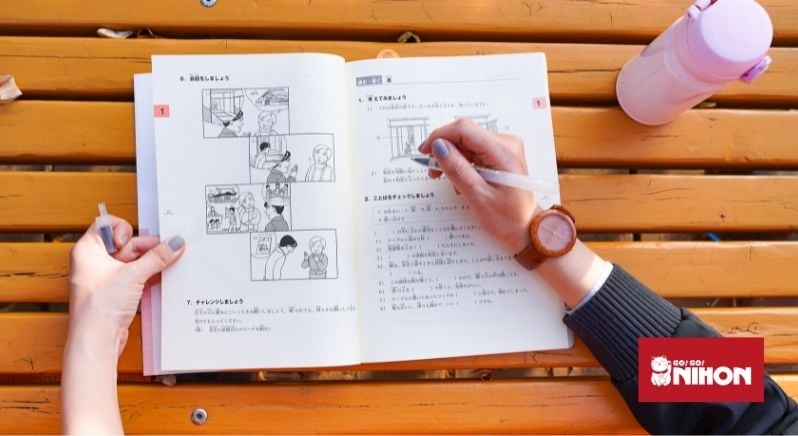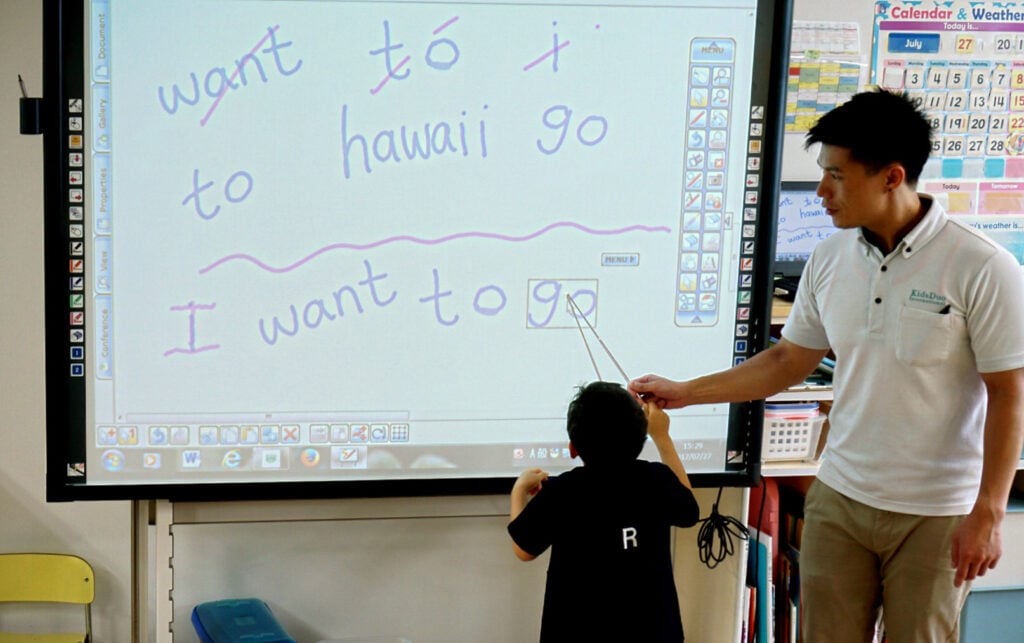You’ve done your research, picked a city you think you’d love, and even started hunting online for good schools or jobs in the land of the rising sun. There’s just one question burning in the back of your mind as you scroll past an intimidating block of indecipherable kanji: do I need Japanese to live in Japan?
It’s the subject of much debate, even among longtime gaijin living in Japan. And while there’s no way to ever answer this question with certainty, in this article you’ll learn where we stand and why.
Do I need to know Japanese for life in Japan?
The short answer here is no, but you really should. And that “no” comes with a few caveats.
The answer ultimately depends on what you’re looking to gain from your life in Japan. If you speak English and don’t mind living in Japan’s English-speaking, gaijin-friendly bubble, having little or no Japanese can be manageable most of the time. You’ll still be able to meet new people, experience unique moments, and navigate much of Japan just fine. However, you are likely to encounter difficulties with the administration side of things, such as registering your address at the ward office and setting up a bank account, or getting a phone contract.
So while it is true, that you don’t need to learn Japanese to live in Japan, you’d be doing yourself a huge disservice. Not learning steals so many potential experiences and will keep Japan a bit smaller than you might like. Seeing the difference between your potential no-Japanese challenges in big cities vs. the countryside is a good start to realise this effect.

Big cities vs. the countryside
In massive cities like Tokyo, you’re more likely to find English-speaking Japanese. But even then, they are somewhat few and far between. Big city-dwellers are used to tourists and how to handle non-Japanese speakers (even if their English skills aren’t the best). You’ll usually find most customer service staff have at least one person who can help you. But, that goes out the window once you decide to visit your first inaka (田舎 – countryside).
It’s not uncommon to wander into restaurants with no English menu and no English-speaking staff. This sounds like a trifle. But if you’re someone with dietary restrictions or allergies – if you’re vegan or gluten-free, for example – it’s going to be hard for you (this is tough even if you do speak Japanese).
Imagine being presented a menu entirely in hand-written kanji. No pictures. Google Translate doesn’t pick up handwriting well either. You might not even know what kind of restaurant you just stepped into since the signage is entirely in kanji too. Picture playing a guessing game like this: you firing off a list of Japanese dishes that you do know and hoping you hit the right one to the chagrin of a confused server.
This problem extends to just about every area of life in rural areas. And to be frank, it applies to life even in the cities, too. Banking, visiting the doctor, navigating around town, making local friends, getting help fixing a tech problem – everything will be significantly harder for you without the language skills.

Why you should learn Japanese in Japan
In case the doom and gloom above didn’t convince you, let’s pivot to some of the positives. Learning another language is such a beautiful experience full of lifelong gifts you’ll be so thankful for. We know it’s not easy. But it’s worth the effort a thousand times over. Here are just a few reasons to put in the work:
- Show respect for the country you’ve chosen to live in
- Earn respect from locals for your genuine efforts to learn their culture
- Easily navigate everyday life without depending on others
- Make more friends and meet people you would never be able to know without language skills
- Language and culture are intertwined. You’ll understand Japanese culture more deeply by knowing the language
- Go anywhere in Japan with confidence knowing you don’t need to find an English speaker
- A sense of pride knowing you made the most of an experience that many are unable to have
And trust us; that last one is worth a lot.

How to start learning Japanese from zero
Now that you’ve seen the light and decided to dive in, where to begin?! There are a few ways to go but you’ll find one tried-and-true path below.
- Buy a textbook. The Genki series is an amazing place to start. You’ll lay a strong foundation by building your knowledge and skills step-by-step.
- Take an immersion class. Immersion classes are taught entirely in Japanese. This sounds scary as a beginner. But a skilled teacher will make this so intuitive and a lot of fun. You’ll also enjoy rapid progress that others in English-taught classes won’t.
- Find a language exchange partner. Being a beginner at anything is the best part. The novelty of something new combined with fast progress keeps your motivation high… For a while. But to make the distance you’ll need a more reliable reward for study – and that’s a language exchange partner.
- Download a vocabulary app. Words are the building blocks of a language so making a habit of learning new words will take you a long way. We recommend Memrise or Anki to get you started.
- Take an online beginner language course. Nothing quite beats the structure of a course that’s been created by language teachers. But if you can’t make it to a class in-person, then an online course is your next best option. Do your research and have a look at your options to find the best course for you. Go! Go! Nihon also offers online language courses created in partnership with our language school partners. Read more on our website.
Of course, there are so many ways to learn Japanese. But a combo of the above 4 is an amazing start.
Learn Japanese with Go! Go! Nihon
Ready to begin your Japanese-learning journey? Your future self will thank you profusely for the work you put in today (maybe even from your new home in Japan). Check out our online courses or contact us to get started now.













